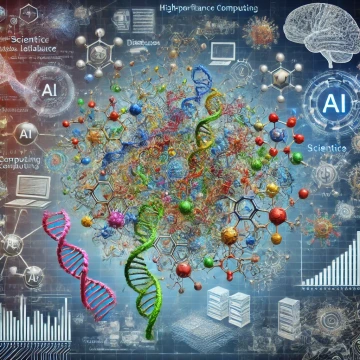Using AI as an essential tool for managing and navigating biomedical literature

When
Webinar materials
Videorecording
Enrique's slides are attached below
About the webinar
The latest advancements in our understanding of human biology are continuously captured in the scientific literature. Our body's biology is driven by complex mechanistic pathways, which are, in turn, governed by biochemical interactions between proteins and other gene products. These pathways interact in ways that can ultimately lead to various diseases and health conditions.

By understanding these interactions, scientists can develop new therapies and treatments, improving quality of life and health outcomes. Staying current with the literature on advancements is an indispensible task for researchers and medical practitioners alike.
As biomedical research grows at an unprecedented rate, Artificial Intelligence (AI) is now an essential tool for managing and navigating the vast, expanding body of literature. In this approximately 45-min long webinar, we will explore the opportunities made possible for health sciences researchers through recent advances in Natural Language Processing (NLP), Large Language Models (LLMs), and the high-performance computing (HPC) resources available within the University of Arizona's research community. Presenter Enrique Noriega will highlight ongoing and completed projects that use CyVerse and exemplify productive collaborations between computer scientists and medical experts, and also discuss how AI can be effectively integrated into life sciences research. This webinar topic also covered in Dr. Noriega's and Dr. Mithun Paul's Fall 2024 DataLab workshop series "AI Makerspace" (more info here).
What you'll learn
- Gain a clear understanding of the AI tools available to life sciences researchers
- Examples of ongoing and completed collaborations between computer scientists and medical experts
- How you can collaborate with the University of Arizona's AI experts to enhance your scientific endeavors
About the presenter

Dr. Enrique Noriega's research focuses on applying machine reading methods to large collections of documents to help scientists search and discover novel information relevant to their own research. With over seven years of experience in academic research, Enrique is a passionate and innovative Research Scientist with the Data Science Institute at the University of Arizona, from which he received both his Ph.D. and M.S. degrees.
His primary areas of expertise are information extraction and information retrieval, using state-of-the-art machine learning methods, such as transformer architectures, language models, and reinforcement learning. Through his research and work with deep learning models, his goal is to advance the understanding and analysis of biomedical texts and data, and to contribute to the improvement of human health and well-being.

